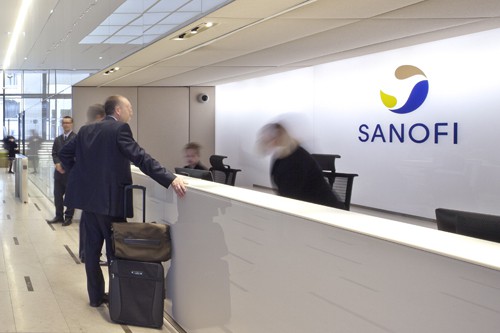
French drugmaker Sanofi has been one of the weaker players in the industry in terms of new product launches in recent years, but that is set to change, says chief executive Chris Viehbacher.
Discussing the company’s R&D heritage on Sanofi’s fourth-quarter results call, Viehbacher conceded that Sanofi “hasn’t brought a lot of new products to market in the last 10 years”, with drugs launched since 2009 contributing less than €1bn to its turnover last year.
Now, Sanofi has it has “one of the better pipelines in the industry” said Viehbacher, with nine late-stage projects that may potentially be filed over the next 4 years in several disease areas, including diabetes, vaccines, cardiovascular and immunology. The improvement also comes despite a reduction in the firm’s R&D headcount from 15,000 to 9,000.
Sanofi announced the end of its patent cliff last September, after a torrid few years which saw the onset of generic competition to big-selling products such as Plavix (clopidogrel) and Avapro (irbesartan).
The company’s results in the fourth-quarter back view, with sales up more than 6 per cent at constant exchange rates to €8.46bn although turnover was driven by a 20 per cent gain for diabetes treatment Lantus (insulin glargine) that accounts for more than 17 per cent of total revenue.
Sanofi is set to face competition from a biosimilar version of Lantus filed by Lilly and Boehringer Ingelheim in both the EU and the US. The French drugmaker has filed a lawsuit in the US against Lilly granting it a 30-month stay, but could lose exclusivity sooner depending on the outcome of the legal battle.
Sanofi is firmly focused on bringing a safer version of Lantus called U300 to market before it loses market exclusivity for its top-seller, and R&D chief Elias Zerhouni said on the results call that he expects to submit this data to the regulatory authorities in the US and Europe in the second quarter of 2014.
Sanofi also has high expectations for LixiLan, a combination of insulin glargine and recently-introduced GLP-1 agonist Lyxumia (lixisenatide), which has just started phase III testing. Lyxumia has just started to roll-out and pulled in €9m sales last year, although its marketing application was pulled in the US for Sanofi to produce further data.
Sanofi’s PCSK9 monoclonal antibody alirocumab – which generated impressive data in a phase III trial last year – is shaping up to have a crucial year with several read-outs from phase III trials that, if positive, could result in first regulatory filings in early 2015, said Zerhouni.
Alirocumab is targeted at statin-intolerant patients or other high-risk groups such as people with diabetes, and Sanofi has a lead in the class over rivals Amgen, Pfizer, Roche and Novartis.
Zerhouni also highlighted Sanofi’s immunology R&D, and in particular anti-interleukin-6 (IL-6) antibody sarilumab, which is in development for the treatment of rheumatoid arthritis as a subcutaneous injection every two weeks, and anti-IL4/IL-13 drug dupilumab for atopic dermatitis and asthma.
Head-to-head trials comparing sarilumab with AbbVie’s anti-TNF blockbuster Humira (adalimumab) suggest Sanofi’s drug has superior efficacy, said Zerhouni, while dupilumab could end up being a valuable alternative to corticosteroids in multiple indications.
Alirocumab, sarilumab and dupilumab all arise from Sanofi’s investment in Regeneron and analysts have speculated Sanofi may increase its stake in the firm or buy it outright in similar fashion to its $20bn Genzyme deal.
Viehbacher remained tight-lipped on acquisition strategy whilst discussing the fourth-quarter results, but said: “we have been, historically, a company that has grown by acquisition and would like to continue to be that.”
Turning to vaccines, Zerhouni noted Sanofi could be the first to bring an effective protection for dengue fever to market, a disease which afflicts some 100 million people a year worldwide with a 2.5 per cent mortality rate. Two phase III trials of the dengue vaccine are due before the end of this year.
Meanwhile, a first-in-class vaccine against Clostridium difficile – a serious hospital-acquired infection – also entered late-stage testing at the end of last year and should generate results in 2017.




